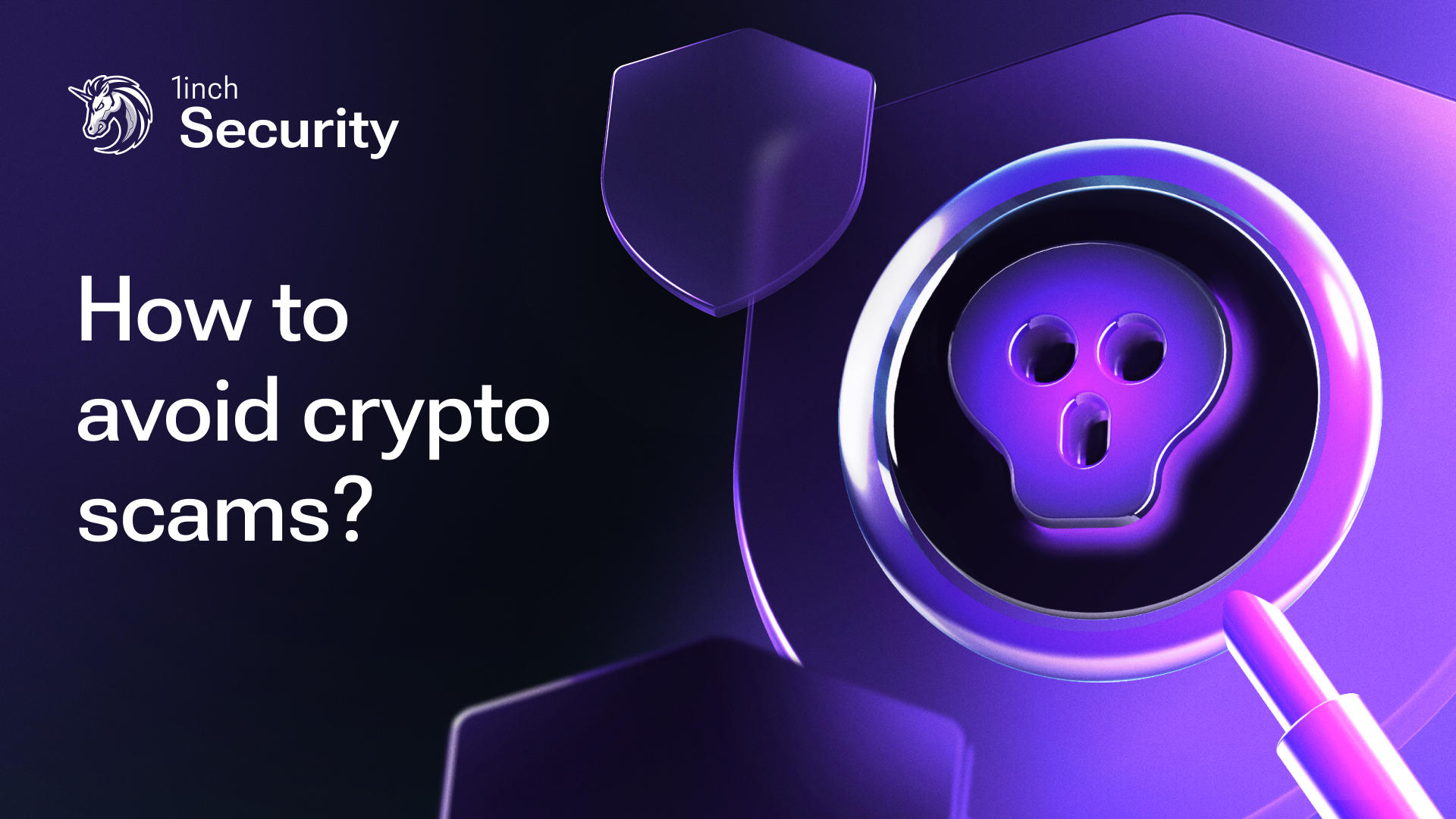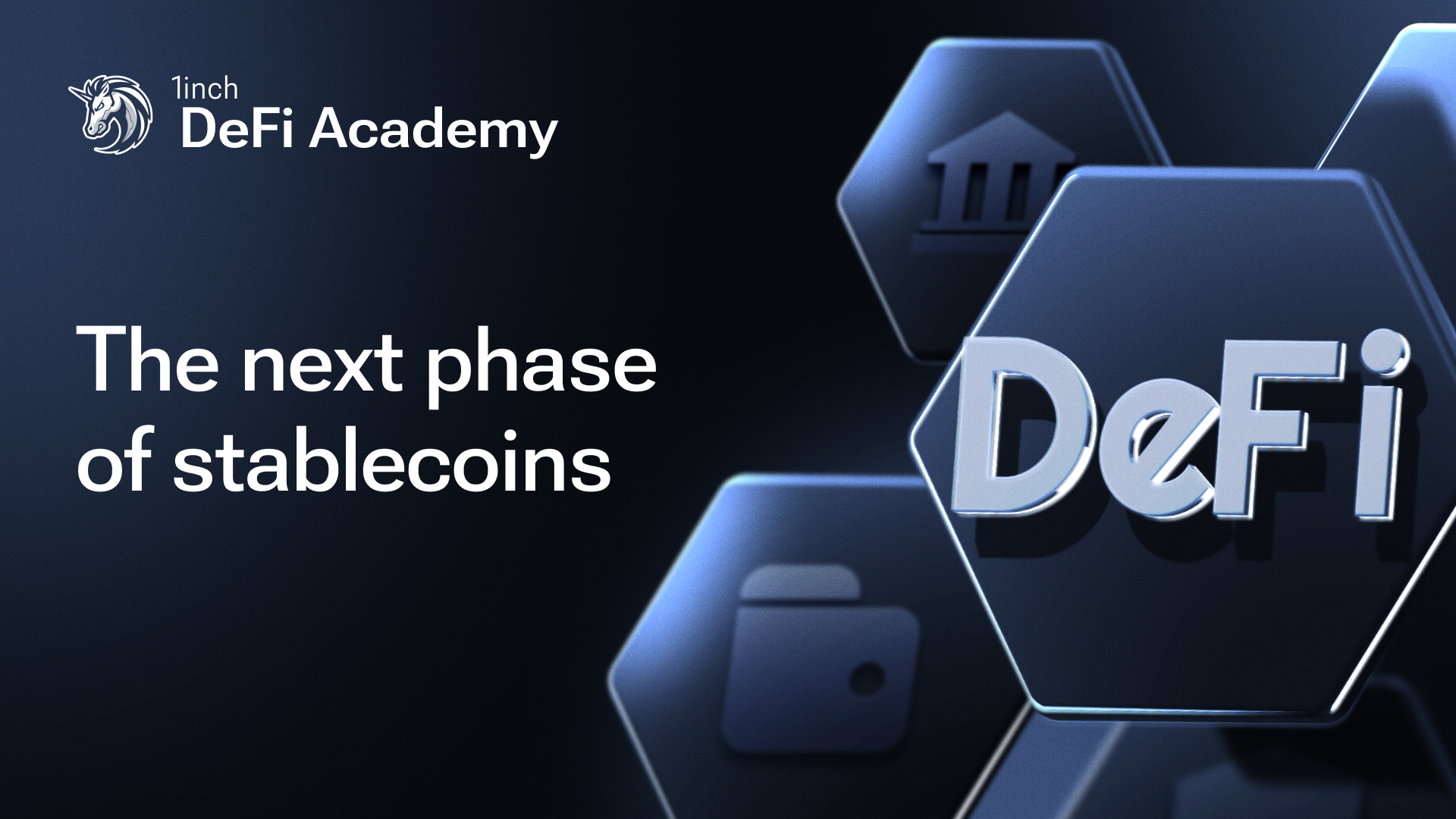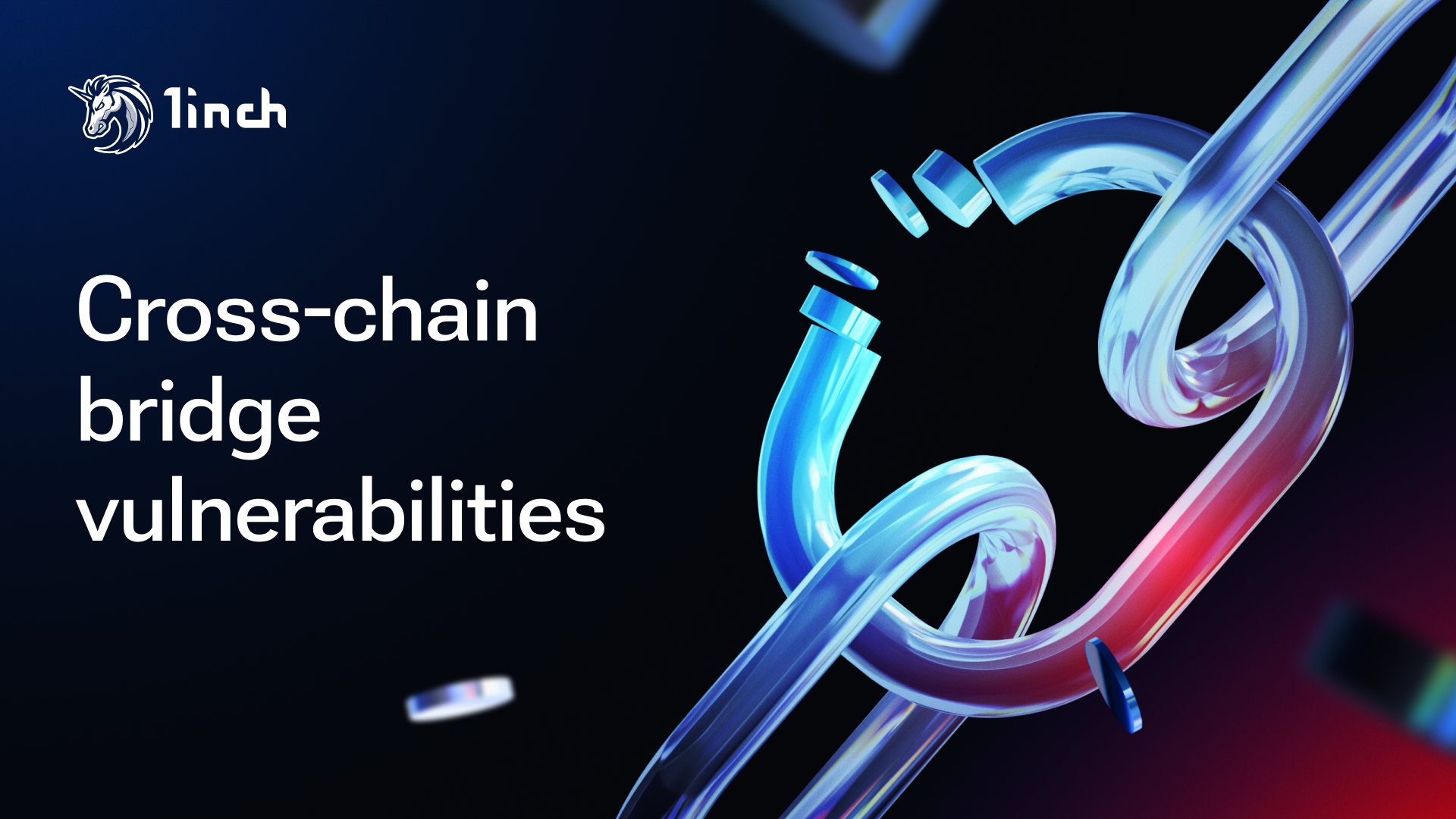How to avoid crypto scams?

At 1inch, the security of user funds is our top priority. This guide is designed to help you recognize and avoid common scams, keeping your assets safe.
Cryptocurrency offers users financial freedom, fast transactions and decentralization. However, it also attracts scammers looking to exploit newcomers and experienced users alike.
Every day, people lose money to fake investment schemes, phishing websites, and fraudulent support channels. Scammers disguise themselves as legitimate platforms, using social engineering to trick users into giving away access to their wallets.
The most common scams include:
- Fake support teams – fraudsters pretending to be customer service representatives.
- Phishing websites – lookalike sites that steal wallet credentials.
- Fake wallets – malicious apps that drain funds.
- Social engineering – manipulation to convince users to send their crypto.
Why this guide matters:
By understanding how scammers operate, you can avoid common traps and protect your funds. This article will help you recognize warning signs and take preventive measures to stay safe in the crypto space.
Basic security principles
The best way to avoid scams is to recognize them before they happen. Fraudsters rely on deception, urgency, and user inexperience. By following a few simple rules, you can significantly reduce your risk of falling into a trap.
Skepticism towards easy money
Most scams play on FOMO (Fear of Missing Out) – the fear of missing a once-in-a-lifetime opportunity.
Scammers often say things like:
- "Exclusive airdrop – only available for 24 hours!"
- "Guaranteed profits – double your money in a week!"
- "Your account is at risk! Urgently transfer your funds to a 'secure' wallet!"
In reality, legitimate investment opportunities don’t require urgency. Take your time, do your research, and never rush into a deal just because it sounds exciting.
Checking sources: always verify before you trust
Crypto scammers often pretend to be official representatives of a project, reaching out via Telegram, Discord, or email.
- Always check that the message is coming from an official 1inch channel. Never trust private messages from unknown accounts.
- 1inch will never contact you first. If someone claims to be from 1inch and messages you directly, it's a scam.
- Double-check social media accounts and only follow links from 1inch’s official website.
- (!) But even official-looking accounts can be compromised. This leads to the next rule: "Trust, but Verify."
Verify before you trust
Even if something looks legitimate, always do your own research:
- Check independent sources (Reddit, Bitcointalk, community forums).
- Compare information – is it consistent across official platforms?
- Check the age and activity of the account contacting you. New accounts with few followers are a red flag.
By following these simple steps, you can avoid 90% of common scams.
Types of scams and how to recognize them
Social engineering
Scammers use psychological manipulation to trick users into revealing sensitive information or making unauthorized transactions, by creating feelings of urgency or other emotions
Examples:
- Fake support teams on Telegram and Discord asking for your seed phrase.
- Fraudulent investment groups promising exclusive trading signals.
- Fake emergencies – "Your wallet has been compromised! Transfer funds immediately!"
Fake wallets and access scams
Scammers create malicious wallet apps that steal funds or trick users into entering their private keys.
How to spot them?
- Wallet apps that are not listed on the official website.
- Fake "recovery tools" that ask for your seed phrase.
- Websites mimicking real wallet providers.
Fraud through fake support
Scammers pose as customer support representatives and reach out to users directly.
1inch will never contact you first. If someone claims to be from 1inch, ignore and report them.
How to recognize fake support:
- Support contacts you first via DM (1inch never does this).
- They ask for your seed phrase or private key.
- They rush you into making a decision.
Fake projects and DeFi traps
Scam projects trick users into investing in worthless tokens or locking funds in fraudulent contracts.
How to identify them
- Use verification tools – Always check DeFi tokens using Token Sniffer. It's recommended to use multiple verification tools to get a more accurate assessment.
- Pay attention to the following red flags:
- Unverified smart contracts.
- Unrealistic promises of high returns.
- Anonymous team with no verifiable history.
Phishing websites and fake domains
Fake websites mimic legitimate platforms to steal login credentials and funds.
Here’s to stay safe:
- Always check the URL before logging in.
- Bookmark official sites instead of clicking links in emails.
- Use browser extensions that warn about phishing sites.
Email and social media scams
Scammers send fake emails or create social media accounts to impersonate crypto projects.
Official 1inch emails will always come from: news@1inch.io. If you receive an email from any other domain, it's a scam.
Red flags in fake emails:
- Spelling mistakes or poor grammar.
- Urgent language pressuring you to act quickly.
- Suspicious links leading to unofficial domains.
How to verify an official source
With so many fake websites and social media accounts, it’s essential to verify that you're getting information from the right place. Scammers often create lookalike profiles or phishing sites to steal funds.
(!) If you interact with a fake source, you risk losing your crypto.
Official 1inch channels
Always use officially verified sources when checking for updates, announcements, and support. (!) But even official-looking accounts can be compromised.
1inch’s official communication channels:
- X (Twitter) – Official 1inch Twitter for announcements and updates.
- YouTube – Official 1inch videos and educational content.
- Discord – Community discussions and announcements. Always check if the invite link is from the official website.
- Telegram EN – Official chat. Remember: 1inch will never message you first on Telegram.
- Telegram News - Official News channel. Use only verified group links.
- GitHub – Official 1inch repository for open-source code.
- Reddit – Official page on
- Instagram – Official page on Instagram
- Blog – Official blog
- Facebook – Official page on FB
How to verify a social media account
- Check the official website's domain (it should be referenced on https://www.coingecko.com/ or https://coinmarketcap.com/ and other platforms).
- Check the account’s date of registration and number of followers (but remember, followers can be artificially boosted).
- Consistency of information across platforms (if X refers to a website, the website should also link back to X).
How to verify a website
Fake websites are a common scam method. They look identical to real sites but steal login details or trick users into signing malicious transactions.
Always double-check the domain before logging in or connecting your wallet.
Ways to verify a website:
- Bookmark the official site – always access 1inch through 1inch.io.
- Cross-check on trusted platforms – sites like CoinGecko and CoinMarketCap link to official domains.
- Check SSL certificates – a real website will have a secure connection (🔒 HTTPS).
(!) Never click on links from suspicious emails, Telegram, or Discord messages!
General security recommendations
To protect yourself from scams, follow these security best practices:
- Check official sources – Always verify the authenticity of the information before taking any action. Double-check links, email senders, and official channels.
- Be skeptical of easy money – If an offer sounds too good to be true, it probably is. Avoid schemes that promise guaranteed high returns.
- Use trusted tools to check tokens and contracts – Platforms like Token Sniffer and Etherscan help analyze smart contracts and flag suspicious tokens.
- Be cautious when searching in Google or any other search engine – Phishing sites often appear as ads in search results. Always manually type the official website URL.
- Protect your wallets and private keys – Never share your seed phrase or private key. Use hardware wallets for long-term storage and multi-factor authentication where possible.
- Keep track of token approvals – Use Revoke.cash to manage and revoke permissions granted to DApps.
- Report suspicious activity – If you encounter a potential scam, report it to the platform and warn the community.
Scammers are constantly evolving, but by staying informed and following security best practices, you can avoid most common scams. Always double-check sources, remain skeptical of too-good-to-be-true offers, and verify before you trust.
If you are unsure whether you're facing a scam, you can always verify with 1inch support at support@1inch.io or wallet@1inch.io




























